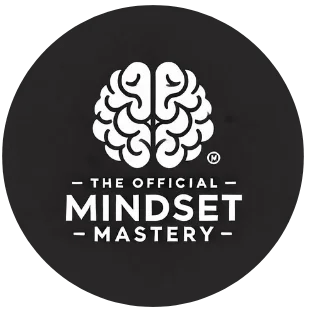In a world filled with constant distractions and overwhelming stress, mindfulness meditation practices have emerged as powerful tools for finding inner peace and enhancing overall well-being. These techniques, rooted in ancient traditions, have gained significant popularity in recent years. According to a 2017 study by the National Center for Complementary and Integrative Health, the number of adults practicing meditation in the United States tripled between 2012 and 2017, reaching 14.2% of the population. This surge in interest reflects a growing recognition of the benefits of mindfulness in our fast-paced modern lives.
Understanding mindfulness meditation
Mindfulness meditation is a practice that involves focusing one’s attention on the present moment, observing thoughts and sensations without judgment. It’s about cultivating awareness and acceptance of our current experiences, rather than dwelling on the past or worrying about the future. This approach to mental well-being has its roots in Buddhist traditions but has been adapted for secular use in various settings, including healthcare, education, and corporate environments.
The core principles of mindfulness meditation include :
- Present-moment awareness
- Non-judgmental observation
- Acceptance of thoughts and emotions
- Cultivation of compassion towards oneself and others
By incorporating these principles into our daily lives, we can develop a greater sense of calm, clarity, and resilience. As someone who has experienced the transformative power of mindfulness firsthand, I can attest to its ability to reduce stress and enhance overall well-being. During my time at Stanford Graduate School of Business, I discovered how mindfulness practices could significantly improve my focus and decision-making abilities, even in high-pressure situations.
Research has consistently shown the positive effects of mindfulness meditation on mental and physical health. A 2014 meta-analysis published in JAMA Internal Medicine found that mindfulness meditation programs showed moderate evidence of improving anxiety, depression, and pain. These findings highlight the potential of mindfulness as a complementary approach to traditional healthcare and stress management techniques.
10 easy mindfulness meditation techniques
Incorporating mindfulness into your daily routine doesn’t have to be complicated or time-consuming. Here are ten simple yet effective techniques to help you reduce stress and boost your well-being :
- Breath awareness meditation : Focus on your breath, noticing the sensation of each inhale and exhale. When your mind wanders, gently bring your attention back to your breath.
- Body scan : Lie down or sit comfortably and gradually focus your attention on different parts of your body, from your toes to the top of your head, noticing any sensations without judgment.
- Loving-kindness meditation : Cultivate feelings of compassion and goodwill towards yourself and others by repeating phrases like “May I be happy, may I be healthy, may I be safe.”
- Walking meditation : Practice mindfulness while walking by focusing on the sensation of each step, the movement of your body, and your surroundings.
- Mindful eating : Pay close attention to the taste, texture, and aroma of your food, eating slowly and savoring each bite.
- Gratitude practice : Take a few moments each day to reflect on things you’re grateful for, fostering a positive mindset.
- Mindful listening : When conversing with others, give them your full attention, listening without interrupting or planning your response.
- Visualization : Imagine a peaceful scene or a positive outcome, engaging all your senses to create a vivid mental image.
- Mantra repetition : Choose a word or phrase that resonates with you and repeat it silently, using it as an anchor for your attention.
- Mindful observation : Choose an object in your environment and observe it closely for a few minutes, noticing its details and qualities.
These techniques can be practiced for as little as five minutes a day, making them accessible even for those with busy schedules. As you incorporate these practices into your routine, you may find that mindfulness becomes a natural part of your daily life, helping you navigate challenges with greater ease and clarity.
Integrating mindfulness into daily life
While dedicated meditation sessions are valuable, the true power of mindfulness lies in its integration into everyday activities. By bringing mindful awareness to our daily experiences, we can transform routine tasks into opportunities for growth and self-discovery. Here are some ways to incorporate mindfulness into your daily life :
| Activity | Mindfulness Practice |
|---|---|
| Morning routine | Start your day with a brief meditation or mindful breathing exercise |
| Commute | Practice mindful awareness of your surroundings, whether driving or using public transport |
| Work tasks | Take short mindfulness breaks between tasks to reset and refocus |
| Meals | Eat mindfully, savoring each bite and paying attention to hunger and fullness cues |
| Evening wind-down | Practice a body scan or gentle yoga to transition from work to relaxation |
By weaving mindfulness into the fabric of your daily life, you create numerous opportunities to reduce stress and cultivate a sense of inner peace. This approach aligns with the teachings of renowned mindfulness experts like Jon Kabat-Zinn, who emphasizes the importance of “moment-to-moment, non-judgmental awareness” in all aspects of life.
As someone who has incorporated these practices into my own life, I can attest to their transformative power. During my time as a consultant at McKinsey & Company, I found that even brief moments of mindfulness throughout the day helped me maintain focus and composure in high-pressure situations. These experiences inspired me to share these techniques with others through my writing and speaking engagements.
Remember that mindfulness is a skill that develops over time. Be patient with yourself as you explore these practices, and don’t be discouraged if your mind wanders or if you find it challenging at first. The key is to approach your practice with curiosity and compassion, gently guiding your attention back to the present moment whenever you notice it has drifted.
Embracing a mindful lifestyle
As you continue to explore and deepen your mindfulness practice, you may find that it begins to influence various aspects of your life. Many practitioners report experiencing :
- Improved emotional regulation
- Enhanced self-awareness
- Greater resilience in the face of challenges
- Increased empathy and compassion towards others
- Better sleep quality
- Reduced symptoms of anxiety and depression
These benefits can have a ripple effect, positively impacting your relationships, work performance, and overall quality of life. As you become more attuned to your thoughts, emotions, and physical sensations, you may find yourself making more conscious choices aligned with your values and long-term well-being.
It’s important to note that while mindfulness meditation can be a powerful tool for stress reduction and personal growth, it’s not a panacea. If you’re dealing with severe mental health issues or trauma, it’s crucial to work with a qualified mental health professional who can guide you in incorporating mindfulness as part of a comprehensive treatment plan.
As you embark on your mindfulness journey, remember that consistency is key. Even a few minutes of practice each day can yield significant benefits over time. Consider joining a local meditation group or using guided meditation apps to support your practice and connect with like-minded individuals.
By embracing mindfulness meditation practices, you’re taking an important step towards reducing stress and enhancing your overall well-being. As you cultivate greater awareness and acceptance of the present moment, you may discover a newfound sense of peace and clarity that extends far beyond your meditation cushion.





